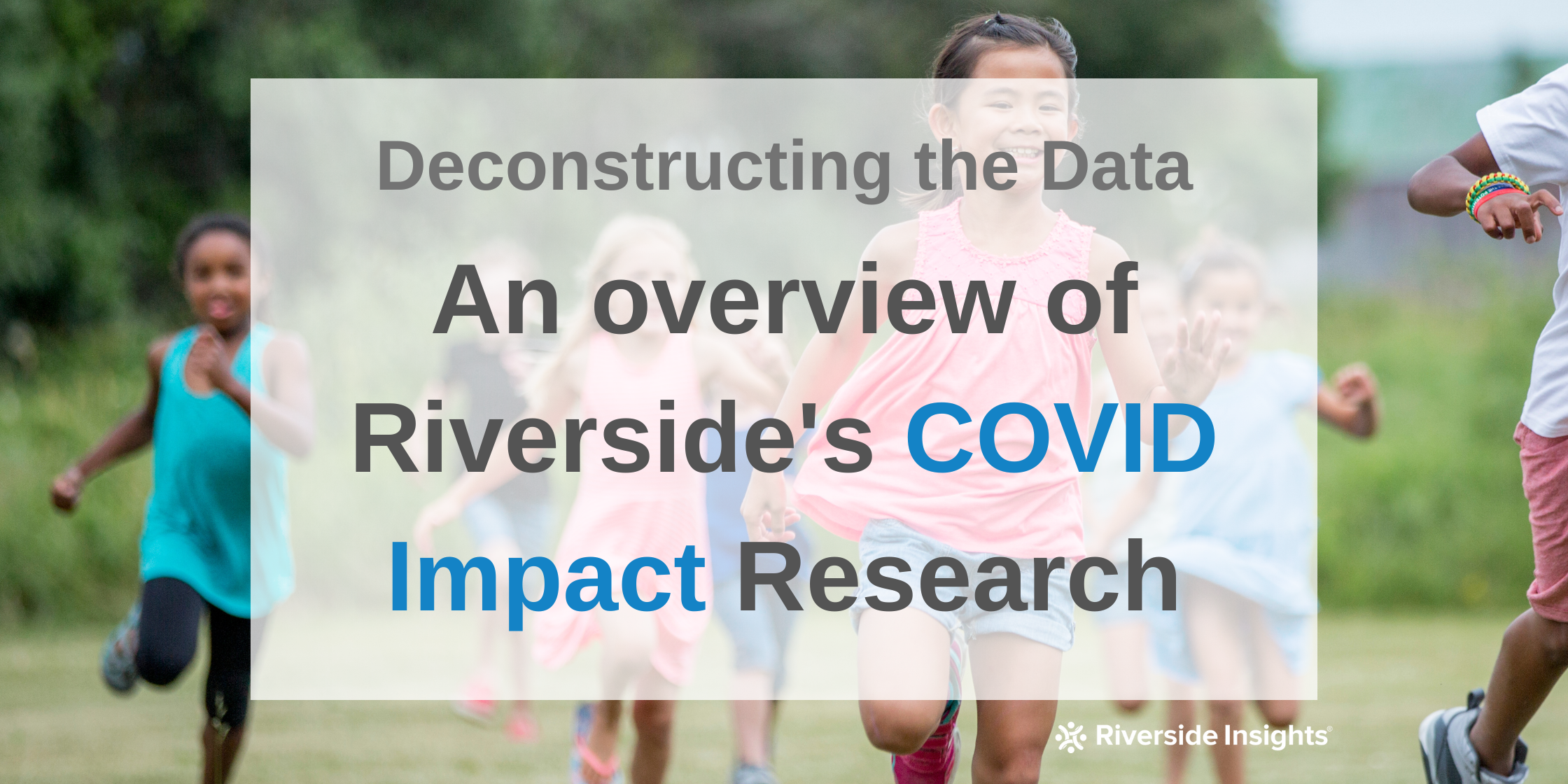.jpg)
This article is an overview of The Use of Assessment Data to Evaluate the Impact of COVID-19: Students’ Performance During the COVID-19 Pandemic Relative to Historical School-Year Averages Prior to the COVID-19 School Shutdown. To download the full report, click here.
Studies to determine the impact of COVID-19 on student learning have mainly focused on subject areas and determined that Mathematics was impacted more than Reading. In an effort to understand this more deeply, Measurement Insights, the research branch of Riverside Insights, sought to determine how specific skills and cognitive reasoning abilities were impacted by learning environments during the pandemic.
While the results did not yield a pattern of significant performance change, some particularly useful correlations came about; correlations that can inform instruction moving forward as districts aim to overcome any learning gaps created by interrupted learning either by time in instruction or environment. The correlations match declines in skill-specific areas to ability reasoning areas that are related, with each having similar negative impacts.
One correlation is that in grades 2 and 5, the largest declines in achievement performance were in Number Sense & Operations, Geometry, and Extended Reasoning in Mathematics. Correlated to that is similar declines in cognitive abilities in Number Series and Number Puzzles. Using this information, these districts may want to intentionally address these areas by providing instructional time for number relationships and number sense protocols that provide the processing supports for the specific achievement gaps.
Schools and districts can benefit from this study. If they don't have their own data points or a way to correlate the achievement data to ability data, they can begin by addressing the specific areas outlined in the outcomes such as the one mentioned above. If districts do have the needed data, they can look for their own correlations leading to instructional planning that is intentional and strategic.
To download the full report, click here
MONICA SIMONDS, M.Ed., is Director of Advanced Learning Programs and Services in Richardson ISD located north of Dallas. After receiving her Master’s in Gifted Education, Monica taught gifted children in all grades and provided professional learning opportunities for the districts. She is a member of the National Association for Gifted Children and a board member for the Texas Association of Gifted and Talented. She presents on gifted education topics such as leadership, equity, change, program design, and instructional design. She has published a book and contributed to a chapter in another as well as multiple articles. Monica is the 2017 recipient of the NAGC Gifted Coordinator award and the 2019 TAGT Administrator of the Gifted award.






